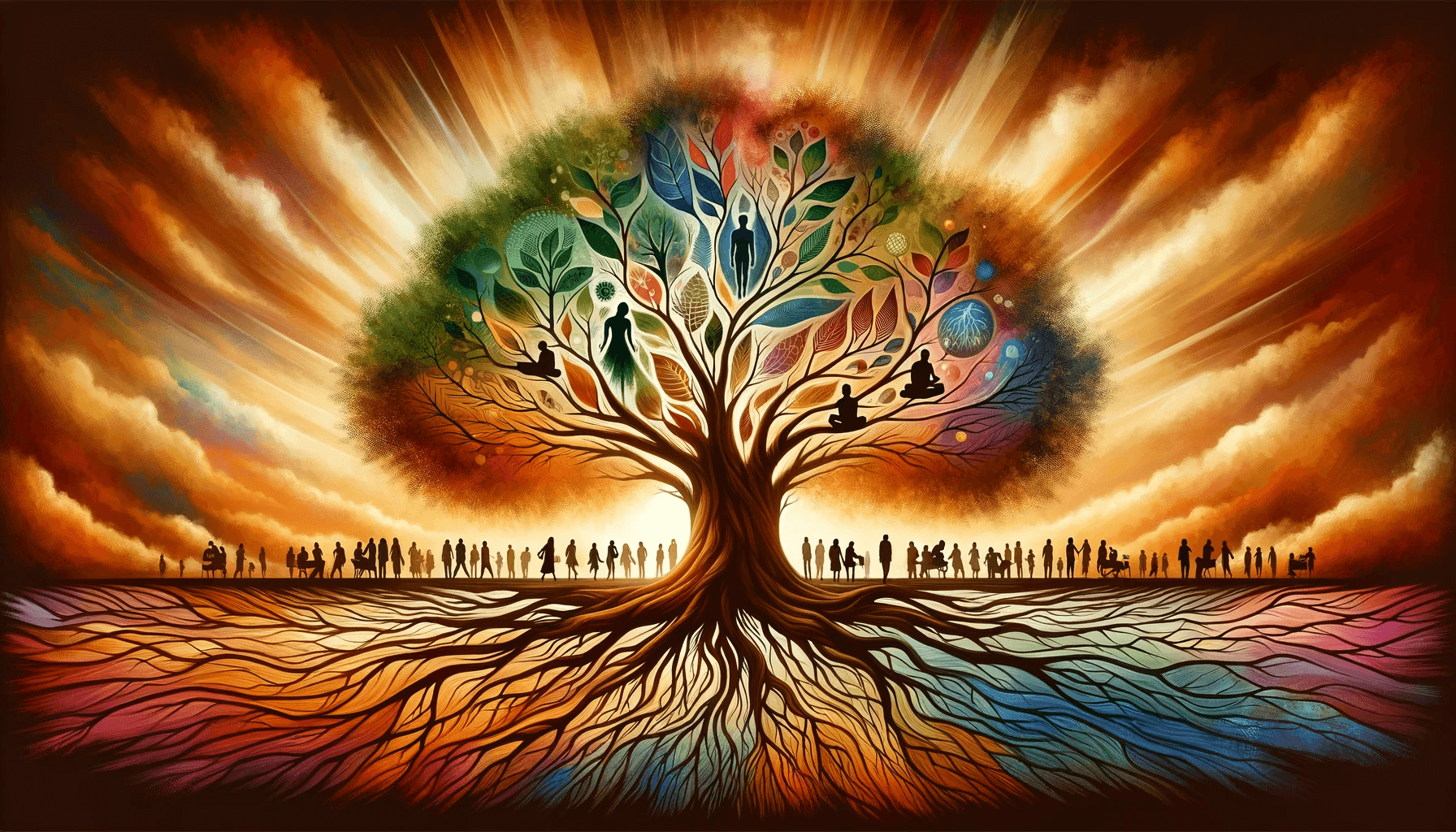Sponsor The Wealth Compass
Table of Contents
Understanding the concept of an extroverted introvert
As an extroverted introvert myself, I often find it challenging to explain my unique personality to others. Being an extroverted introvert may seem contradictory, but it’s an authentic and valid personality type. Extroverted introverts, or ambiverts, possess the qualities of extroverts and introverts. They have a social side but also need their alone time to recharge.
Extroverted introverts are often mistaken for extroverts due to their ability to socialize and engage in conversations easily. However, unlike extroverts who gain energy from social interactions, extroverted introverts can find it draining and need time alone to recharge their batteries. This blend of extroversion and introversion creates a unique personality that is often misunderstood.
Signs that you might be an extroverted introvert
If you’ve ever questioned whether you’re an extroverted introvert, there are several indicators to consider. Firstly, you may find yourself enjoying social gatherings and being the life of the party, but after a while, you feel exhausted and crave solitude. While you can be outgoing and friendly, you also need time to be alone with your thoughts and recharge.
Another sign of being an extroverted introvert is your ability to adapt to different social situations. Depending on the circumstances, you can easily switch between being the center of attention and being a good listener. Extroverted introverts are often skilled communicators and can engage in meaningful conversations with various people.
Additionally, extroverted introverts may have a small circle of close friends rather than a large group. They prefer deep connections and thrive in one-on-one interactions where they can be themselves. If you enjoy deep conversations and choose quality over quantity regarding friendships, you might be an extroverted introvert.
The challenges faced by extroverted introverts
While being an extroverted introvert has advantages, it also comes with its fair share of challenges. One of the main struggles is the constant need to balance socializing and alone time. Extroverted introverts often find themselves torn between wanting to engage in social activities and the desire to have quiet, uninterrupted moments to recharge.
Another challenge is the misconception that extroverted introverts are always outgoing and never need alone time. This misunderstanding can lead to others expecting constant social engagement, which can be overwhelming for extroverted introverts. Extroverted introverts must set boundaries and communicate their need for solitude to maintain their mental well-being.
Additionally, extroverted introverts may struggle with feeling misunderstood by both extroverts and introverts. Extroverts may not understand the need for alone time, while introverts may not comprehend the desire for social interaction. This can lead to feelings of isolation and difficulty finding a balance between the two aspects of their personality.
How to thrive as an extroverted introvert
Thriving as an extroverted introvert involves understanding and embracing your unique personality traits. One of the most crucial aspects is self-awareness. Recognize when you need alone time and ensure you have regular periods of solitude to recharge. This could be as simple as walking alone or spending an evening reading a book.
Another way to thrive as an extroverted introvert is to create a balance between social interactions and alone time. Plan social activities in moderation, ensuring you have enough time to recharge afterward. It’s essential to prioritize your mental well-being and not feel guilty for needing time alone.
Additionally, find activities that align with your personality. Engage in hobbies that allow you to express yourself and find fulfillment. This could be anything from painting to playing a musical instrument. You can tap into your extroverted and introverted sides by engaging in activities that bring you joy.
Strategies for managing social interactions as an extroverted introvert
Managing social interactions as an extroverted introvert can be challenging, but with the right strategies, it becomes more manageable. Firstly, learn to listen actively. Extroverted introverts are skilled listeners and can make others feel heard and understood. By focusing on the person you’re conversing with, you can engage in meaningful conversations without feeling drained.
Setting boundaries is also crucial when managing social interactions. Communicate your need for alone time to your friends and loved ones so they understand your limitations. Expressing your boundaries can ensure your relationships are healthy and balanced.
Moreover, practice self-care before and after social interactions. Engage in activities that help you relax and recharge, such as meditation, warm baths, or running. By taking care of yourself, you can approach social interactions with a refreshed and energized mindset.
The benefits of being an extroverted introvert
Being an extroverted introvert comes with its own set of advantages. Firstly, extroverted introverts can navigate both social and solitary situations with ease. They can adapt to various environments and connect with people more deeply.
Additionally, extroverted introverts possess excellent communication skills. This allows them to express themselves effectively and build meaningful relationships. Their ability to listen actively and engage in conversations makes them valuable contributors in personal and professional settings.
Furthermore, extroverted introverts often possess a unique perspective due to their ability to see the world from an extroverted and introverted standpoint. This dual perspective allows them to approach problems and situations with greater depth and understanding.
Common misconceptions about extroverted introverts
There are several common misconceptions about extroverted introverts that can lead to misunderstandings. One misconception is that they are shy or socially anxious. While extroverted introverts may experience moments of shyness or social anxiety, it is not the defining characteristic of their personality.
Another misconception is that extroverted introverts are inconsistent or unpredictable. People may perceive their ability to switch between extroversion and introversion as a lack of stability. However, this adaptability is a strength that allows them to navigate different social situations effectively.
Lastly, extroverted introverts may be mistaken for attention-seekers. Their outgoing and sociable nature can sometimes be misinterpreted as a desire for constant attention. However, extroverted introverts enjoy socializing to a certain extent and also value their alone time.
Tips for understanding and supporting extroverted introverts in your life
If you are an extroverted introvert, it’s essential to understand and support their unique needs. Firstly, respect their need for alone time and don’t take it personally if they decline social invitations. Understand that their energy levels fluctuate, and they need time to recharge.
Additionally, be a good listener. Extroverted introverts appreciate meaningful conversations and value being heard. Show genuine interest in what they say and create a safe space to express themselves.
Lastly, be patient and understanding. Extroverted introverts may need time to process their thoughts and emotions before sharing them. Allow them the space and time they need, and don’t rush them into making decisions or engaging in conversations they’re not ready for.
Famous extroverted introverts and their success stories
Many successful individuals throughout history have been extroverted introverts. One notable example is Abraham Lincoln, who possessed excellent communication skills and was known for his ability to connect with others. However, he also valued his alone time and often retreated to solitude to gather his thoughts.
Another famous extroverted introvert is J.K. Rowling, the author of the Harry Potter series. Rowling is known for her captivating storytelling and ability to engage with readers. However, she also values her privacy and has spoken about her need for solitude to fuel her creativity.
Conclusion: Celebrating the unique qualities of extroverted introverts
Being an extroverted introvert is a unique and valid personality type. Understanding and embracing the qualities of an extroverted introvert can lead to a more fulfilling and balanced life. By recognizing the signs, managing social interactions, and supporting extroverted introverts, we can celebrate their unique qualities and contributions to the world. So next time you encounter an extroverted introvert, appreciate their ability to navigate social and solitary worlds.




